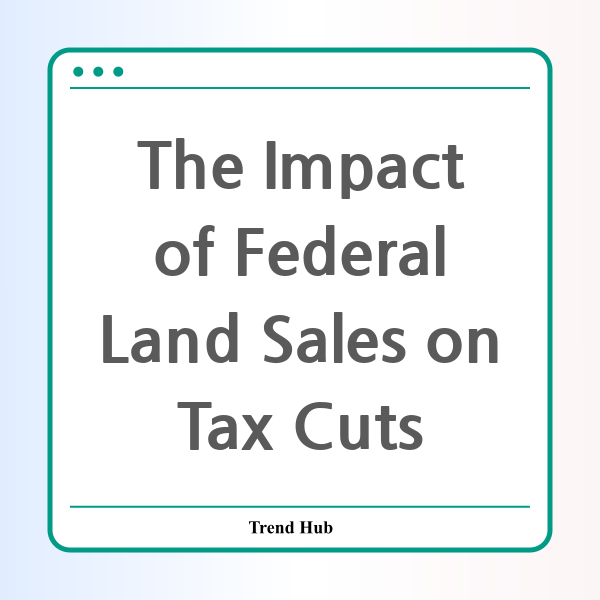* This website participates in the Amazon Affiliate Program and earns from qualifying purchases.

As the ongoing debate around taxation and federal spending heats up, one contentious proposal on the table is the sale of federal lands to finance tax cuts. With House Republicans pushing forward a plan to raise billions, many are left wondering: What does this mean for our public lands and the communities that depend on them?
The recent decision by House Republicans to sell over 11,000 acres of federal land in states like Utah and Nevada caught considerable attention. This plan is not merely a financial maneuver; it intertwines with broader discussions about federal authority, state rights, and environmental stewardship. But is selling off public land a viable solution to funding tax breaks?
The House Natural Resources Committee has given the green light to these sales as part of a larger legislative strategy to finance President Trump's tax cuts. The proposal is expected to raise significant funds—up to $18 billion—through a combination of land sales and increased energy leasing on public lands. Those in favor argue that it will provide a much-needed boost to local economies, particularly in areas struggling with high federal land ownership that hampers development.
For instance, Representative Celeste Maloy from Utah emphasizes that high percentages of federal land restrict local governments from fully engaging in economic and infrastructure development. She argues that this initiative is essential for supporting affordable housing projects and improving transportation networks in her district.
However, not all is smooth sailing. The proposal has faced backlash, not just from Democrats but also from within the Republican party. Critics argue that the sale of public lands marks a dangerous trend towards privatization, raising concerns about environmental impact and loss of public access. Environmental organizations fear that this could pave the way for larger scale transfers of federal lands, leading to less regulation and more exploitation by private interests.
In a climate of heightened environmental awareness, the prospect of federal land sales brings considerable anxiety. Adverse consequences on ecosystems, biodiversity, and natural resources are at the forefront of these concerns. Tracy Stone-Manning from the Wilderness Society pointedly criticized the move, asserting that it reflects a shift in priorities towards benefitting wealthy individuals while disregarding the public good.
The political landscape continues to shift, with the possibility that the amendment may face significant opposition when it comes to a full House vote. Republican leaders must navigate this tightrope act, where losing even a handful of votes could jeopardize the entire package aimed at fulfilling Trump’s economic agenda.
This unfolding situation raises pressing questions about the balance between economic development and environmental stewardship. As communities grapple with the challenges presented by federal land ownership versus the need for growth and development, the implications of these federal land sales will resonate far beyond the immediate financial impact.
Ultimately, the discussions surrounding the federal lands sale highlight broader themes in American politics today—the tension between state and federal authority, the ongoing fight over public resources, and the complex relationship we have with our environment. The outcome may set a precedent for how public lands are valued and managed in the future.
* This website participates in the Amazon Affiliate Program and earns from qualifying purchases.